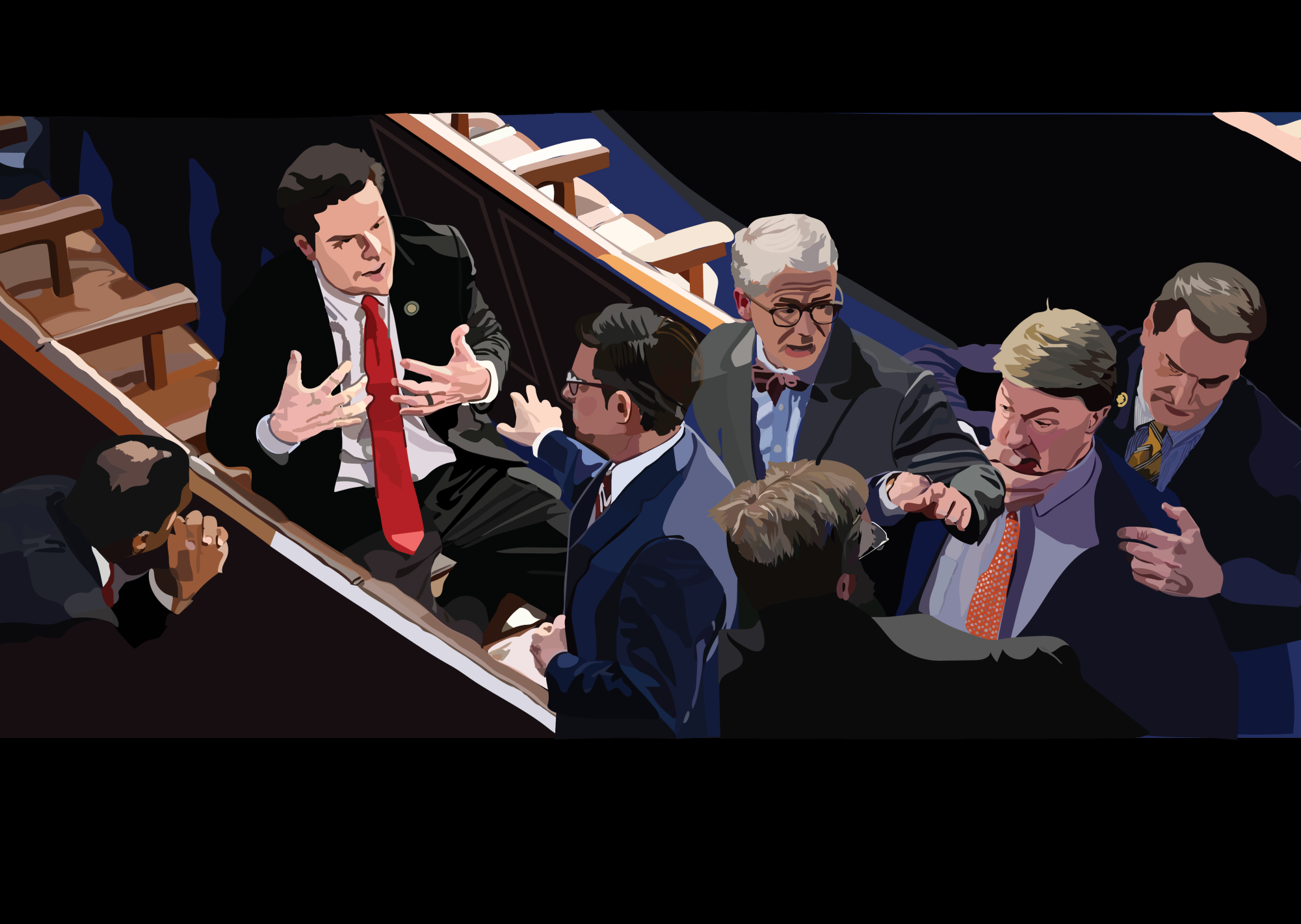Ridhi Dondeti, member of CHS debate team and senior, said she increased her engagement in politics specifically during her high school years.
“A lot of (my involvement in civic engagement/political awareness) happened more in high school years, especially in (my) junior and senior year because a lot of things you can do with civic engagement usually happen when you’re older than 16,” Dondeti said. “With that I have just been trying to find as many things like politics, current events and law, things that I can get my hands on and start to learn about and be a part of.”
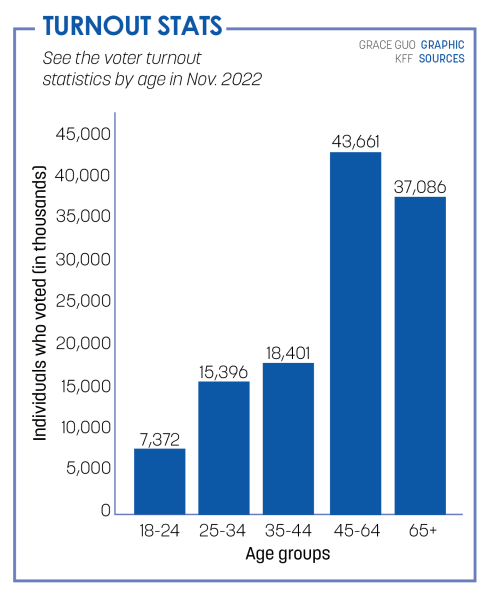
Dondeti is not alone. According to a 2021 U.S. Department of Health survey study, while young people may be less likely to engage in mainstream media consumption, 90% of the high school students surveyed had engaged in politics in general and 40% had engaged in participatory politics. People like Dondeti and Maxwell Gootee, Congressional debate head and junior, said their civic engagement stemmed from the ability to participate in clubs or other activities centered around political issues. Those opportunities, they said, made them more interested in the issues.
Gootee also said having politically-involved parents influenced his decision to increase his civic engagement and political awareness.
Gootee said, “I’m engaged in politics by just staying educated on (it). My parents are those (kind of) parents that bring (politics) up constantly, and just having two cents I can donate to them about it makes me feel more engaged rather than being entirely hands off.”
Dondeti agrees with Gootee in the sense that outside influences helped her become more engaged in civic engagement.
“(Girl’s Nation) influenced my decision because I had more hands-on experience with what I could do with politics and public policy,” she said. “For example, especially with Girls Nation, I was able to learn more about Senate procedures and actually be involved in policy making, which was pretty cool. But I think I got into politics mainly by watching the news and being exposed to the debates and speeches pretty early on, and to me the environment seemed kind of like one that I hope to contribute to and want to make a change in.”
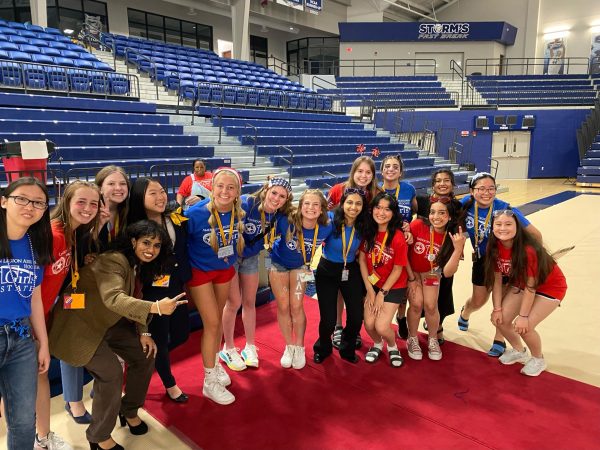
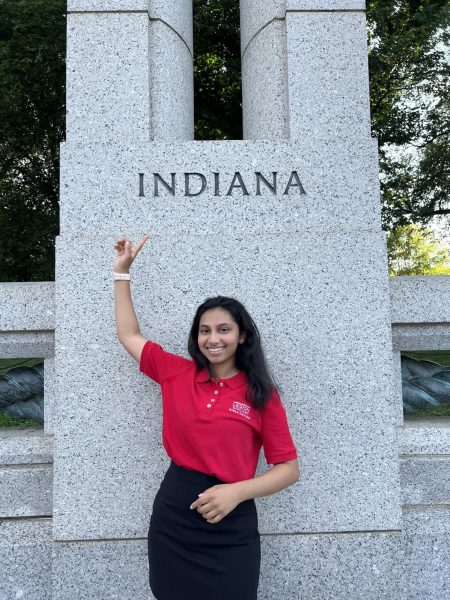
Head debate coach Park McMillan said clubs like debate contribute to helping students get involved in youth civic engagement and political awareness.
“Debate clubs play a pivotal role in promoting youth civic engagement and political awareness. In our debate program, students engage in researching and discussing a wide range of topics, many of which are related to current events and political issues,” McMillan said . “This hands-on experience enables them to delve deep into complex topics, understand multiple perspectives and develop persuasive communication skills. By participating in debates and public speaking, students gain the confidence to voice their opinions and engage in constructive discussions, which are essential for political awareness and civic participation.”
Gootee said he agreed with McMillan in terms of how debate helped encourage youth civic engagement and political awareness.
“Debate in general encourages civic engagement and a lot of political involvement by forcing you to be more knowledgeable on real world events,” he said. “If we’re looking at events like policy, which are (heavily) politics-driven, like literally writing policies, it’s a lot about how different groups interact within the political sphere. Whereas in other groups, it’s more like key issues such as abortion or civil rights or human rights, being debated. (It all) helps you be more knowledgeable about these important subjects.”
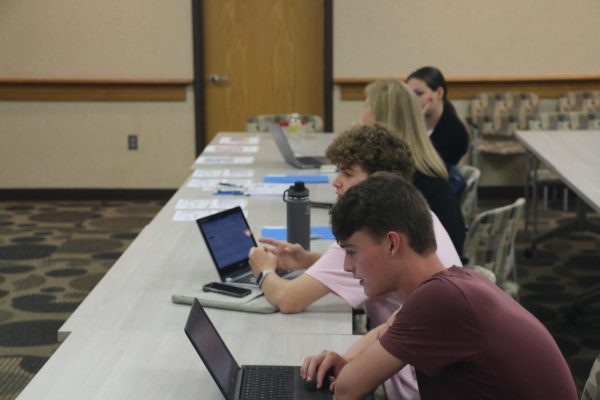
McMillan said he has seen students undergo significant transformations through their increased political awareness due to their participation in debate.
“(Students) develop a greater sense of responsibility towards their communities and the broader world. They become more proactive in seeking out information, critically evaluating sources and forming well-reasoned arguments,” McMillan said. “This not only enhances their performance in debate but also equips them to be informed voters and active participants in community initiatives. Many of our debate team members have gone on to pursue careers in law, politics, journalism, foreign relations and public service which can be directly attributed to their involvement in debate and their growing awareness of civic and political issues.
“Additionally, debate encourages students to engage in community service and advocacy, which allows them to see the real-world impact of political decisions,” he added. “As they participate in competitive debates, they often research and argue about a wide range of topics, from climate change to healthcare to economics, which deepens their understanding of these issues. Ultimately, their growth in political awareness is evident in their ability to articulate informed opinions, engage in meaningful discussions, and contribute positively to society as responsible citizens.”
Dondeti said she agrees with McMillan and talked about her experience with Girls Nation, an annual civic training program run by the American Legion Auxiliary.
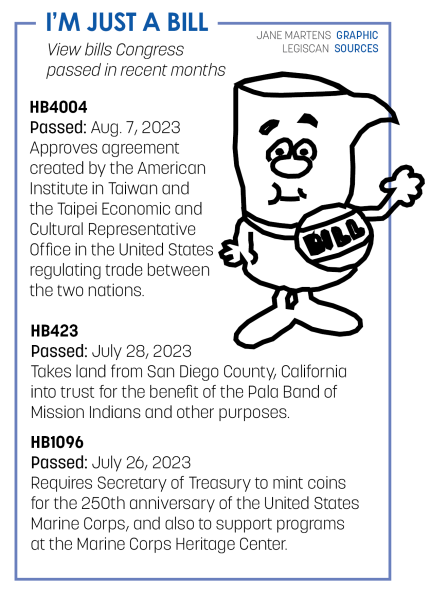
“Girls Nation really solidified my interest in public service, (since) that’s something that I’ve been really interested in because I’ve loved keeping up with current events like politics in general ever since I was younger, watching speeches and debates and things like that,” Dondeti said. “With Girls Nation I was really able to take that up a notch–one of the main things we did was go on Capitol Hill Day. We met with some of the staff for Senator Braun and we talked to them (about) what policy changes they are implementing. The day that we went was the day that they were talking about a big national defense bill so there (were) a lot of senators (that day) coming in and going and everything so I got to watch that and see Bernie Sanders give a speech about climate change and everything.”
Both Dondeti and Gootee said political awareness plays a big role in their lives. They both said they stay up-to-date with different policies and how the government functions.
“Political engagement has played a huge role in my daily life recently, just because (I’ve been) staying up-to-date with a lot of laws that have been passed,” Gootee said. “For example, on a smaller level, the school’s been passing a lot of restrictions and changes to grading, and stuff like that, which is important to pay attention to just as a student. For a lot of women, it’s about keeping up with all of the bans on abortion and stuff like that, just because it’s been teeter-tottering back and forth recently, and I think that’s something that’s really important to keep up with.”
Similarly, Dondeti said political awareness will be especially important to her in the following years since she begins to vote next year.
“I think (political awareness) definitely does (play a role in my life) because for me, I’m the type of person that has a bunch of notifications on for (Associated Press) and things like that so I always try to read things like that,” Dondeti said. “I’m going to (be) voting in the next election so (political awareness is) something that is very important to me even though I have my political affiliation set. It’s really important for me to see both sides and understand what both sides are saying, especially to have those unbiased versions.”
Though Gootee will not participate in next year’s election, he said moving forward, political engagement will influence his path greatly.
“In college (politics) will (influence me a lot more) because different colleges have a lot of different beliefs, and it’s (important to consider) what I would (work well with),” he said. “(Right now, politics have) definitely affected friendships and relationships, (because it can cause issues) if we don’t see eye to eye on major key issues.”
Ultimately, Dondeti and Gootee both said there are a number of different opportunities in the community for those who are looking to increase their political engagement. Gootee said students are not limited to joining clubs that are centered around politics, and there are many other clubs that can increase political awareness and civic engagement.
“(For example), debate caused me to be more politically engaged and aware on a basic level because it forced me to research and know more about the world,” said Gootee. “Though, in a more general sense it teaches you to care more about the little details and arguments in daily life which are highly prevalent in politics so it helps you not only to just know more but to also be more interested causing you to be more engaged.”
“There are a lot of different students starting a lot of different clubs. I personally haven’t joined any that are specific to politics, but I think in general, getting involved in different (clubs) gets you more involved in politics,” he said. “Even if it’s just one of those groups like MEDLIFE that are just trying to help other groups out, because they interact with politics a lot.”
Dondeti also said students can increase political awareness and civic engagement by staying educated and updated about the political world.
“I think news sources (have) always been really good, especially because Carmel has their mayoral election coming up, (and) also with the city council and everything, getting involved (with those elections) is also a really good way to be more civically engaged,” she said. “But I also think learning more about different elections that are happening in different states (is also important). For example, I helped out with this Supreme Court election in Wisconsin for this one candidate, Janet Protasiewicz.”
McMillan said youth political awareness and civic engagement are beneficial for students, as well as the community as a whole.
“(Youth civic engagement and political awareness) empower young individuals to become informed, active citizens who can participate in the democratic process. It fosters critical thinking, research skills, and the ability to analyze complex issues,” McMillan said. “It also helps students develop empathy and a sense of social responsibility, as they become more aware of the challenges faced by their communities and the world. Additionally, youth civic engagement can open up opportunities for leadership and advocacy, which are invaluable skills for personal and professional growth.”

